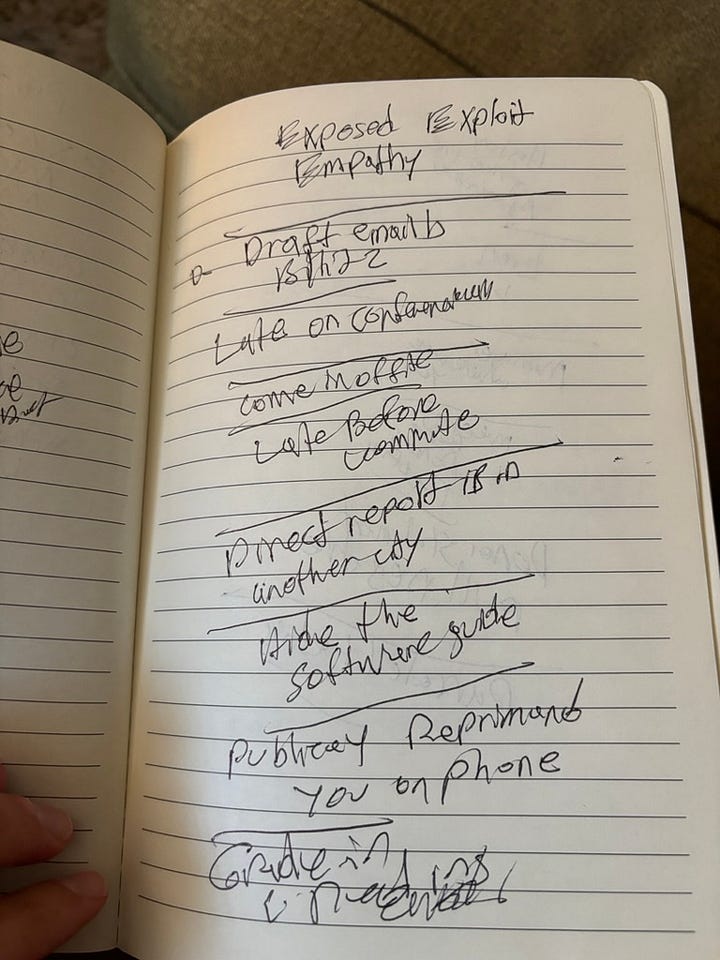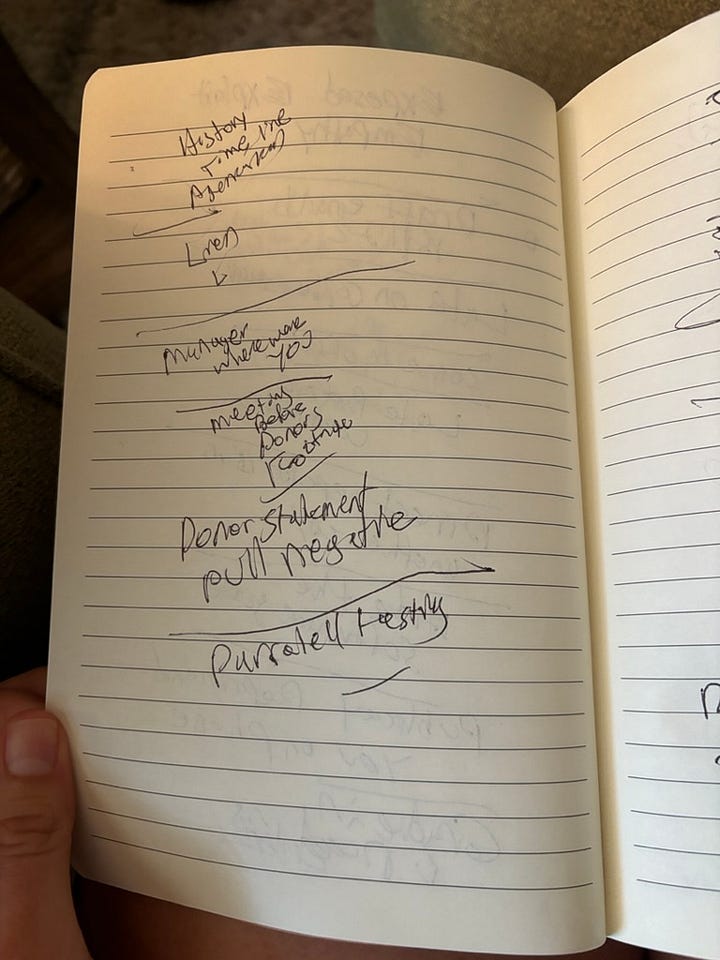“Being an accountant in a toxic culture working for a bully boss is extra stressful. You are the messenger of bad news and the numbers may seem bad. If you work for an insecure boss you are in a “no-win” situation. When the numbers are good, you are a threat to the bully boss who might be replaced by your good work. To survive, you must let the bully boss take all the credit for the good number crunching. To save your ass, you must document your work when the paranoid boss blames you for bad numbers.”
I met Gary at an author event at my local library this summer. He was there with his wife. When I told him about my book, he resonated with the concept. He started reflecting on his career. Now retired, it quickly became clear that Gary had endured decades of terrible bosses and toxic work cultures. I handed him a journal and a pen and encouraged him tell his work-hurt stories, which he did. He wrote for over an hour.
When he returned the journal, I flipped through it quickly. His pen had touched 19 pages. Six of the pages contained lists—brainstorming and outlining what he should include. The rest held his account of working for bully bosses as a corporate accountant.


“The worst day,” Gary wrote, “is when you know you are the target of your bully boss. At least you know your situation. How do you know you are the target? You have received a bad review, termination warning, public reprimand, or have been publically humiliated on a conference call or team meeting. The boss views your termination as the only solution. What is the real problem? The boss is insecure is the problem. Your termination makes the boss feel more secure but that’s not a long-term solution.”
“Organizational Terrorism”
While writing my book, I came across an article that uses the term “organizational terrorism” to describe the actions of bully bosses. Cam Caldwell and Mayra Canuto-Carrnco wrote,
We define “organizational terrorism” as the actions of any organization member which are taken to further a self-serving personal agenda that undermines the long-term welfare and growth of the organization and denies the rights of organization members.
In the article, the authors compare organizational terrorists to political terrorists. They believe that this concept can “call attention to the inappropriateness and dysfunction of an overly controlling leadership model in today’s complex business world (Covey, 2004; Kolp and Rea, 2006).” The term caught my attention. How about you?
Share Your Story
If you’ve had a bully boss or been the victim of organizational terrorism, you’re not alone. In my book, you’ll read the stories of several people who had truly terrible bosses. When I interviewed them, I felt the weight of what they endured. Some of their situations defied belief. Like Gary, they shared their stories to help you if you’ve been or are currently in a similar situation.
But many of those I interviewed also found it cathartic to share their work hurt stories. There’s a relief in saying aloud what happened to you. It makes it feel a little more real, and admitting the hurt can open the door to healing.
If you’d like to share your bully boss story to
start the healing process or
help someone else feel a little less alone,
you can now do that by emailing me at whenworkhurts@gmail.com.
I’ll do my best to read it and send you a note in return. But please note that I may use your story in publications or presentations as I talk with others about work hurt. If I do, I’ll de-identify your story by changing your name and key details so it can’t be traced back to you.
Thanks for Reading
A few reminders before I go.
When you subscribe to my Substack, you’ll get a free download to help you begin to deal with your work hurt.
You can pre-order my book When Work Hurts on Amazon.
Stay tuned for more from Gary and other work hurt stories.



